Donetsk airport: The intimacy of Sparta Battalion on the frontline
For two years, the Sparta Battalion have fought Ukrainian troops in Donetsk. Victoire Chevreul reveals how these soldiers on the frontline, who mainly fight at night, occupy themselves when they are not in combat
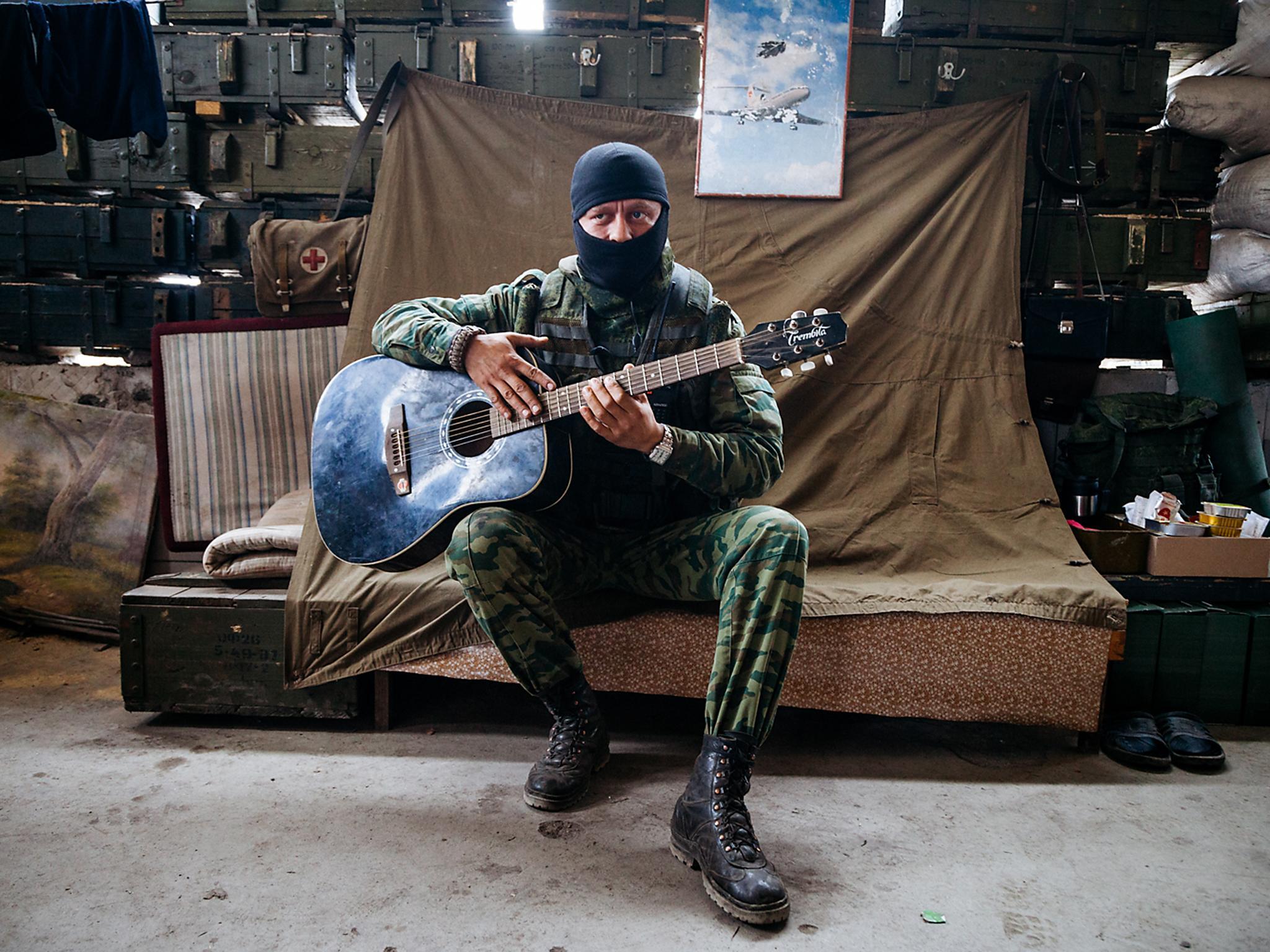
Your support helps us to tell the story
From reproductive rights to climate change to Big Tech, The Independent is on the ground when the story is developing. Whether it's investigating the financials of Elon Musk's pro-Trump PAC or producing our latest documentary, 'The A Word', which shines a light on the American women fighting for reproductive rights, we know how important it is to parse out the facts from the messaging.
At such a critical moment in US history, we need reporters on the ground. Your donation allows us to keep sending journalists to speak to both sides of the story.
The Independent is trusted by Americans across the entire political spectrum. And unlike many other quality news outlets, we choose not to lock Americans out of our reporting and analysis with paywalls. We believe quality journalism should be available to everyone, paid for by those who can afford it.
Your support makes all the difference.In Donetsk, otherwise known as the Donetsk People’s Republic (DPR), the self-proclaimed state in Ukraine, the Special Forces military unit, Sparta Battalion, holds its position at the Sergey Prokofiev airport to keep the city from Ukrainian troops. If you control the airport you control the city.
The Ukrainian war has largely been forgotten by the world. But more than 10,000 have died in a combat that began in March 2014. In Donbass, the fighting between Donetsk and Kiev mostly happens in the evening.
We found how these young soldiers are handling life in their position and how they occupy themselves during the day on the frontline. They managed to recreate some sort of cosy environment to feel almost “at home”, even if they are risking their lives every day to hold Donetsk in the new Republic.
On the frontline the entire battalion is gathered in the shelter, which is surrounded by the remains of what used to be an airport. It was brand new in 2012; a modern building made of glass and iron. Today broken cables dangle from the girders of this ruin. But, inside, soldiers warm up near a fireplace, reading books or exercising to stay in shape.
One fighter is sitting in front of the fire. Pets are keeping him company; a kitten and a big dog play beside him. It’s quite odd, he says, that we might be interested in something other than the fighting on the frontline. “Some guys in the battalion usually read books to relax between two offensives but it’s not my style.” he adds, smiling with a proud attitude. He continues, “Usually I train in order to stay ready to fight, and I do a lot of sport.”
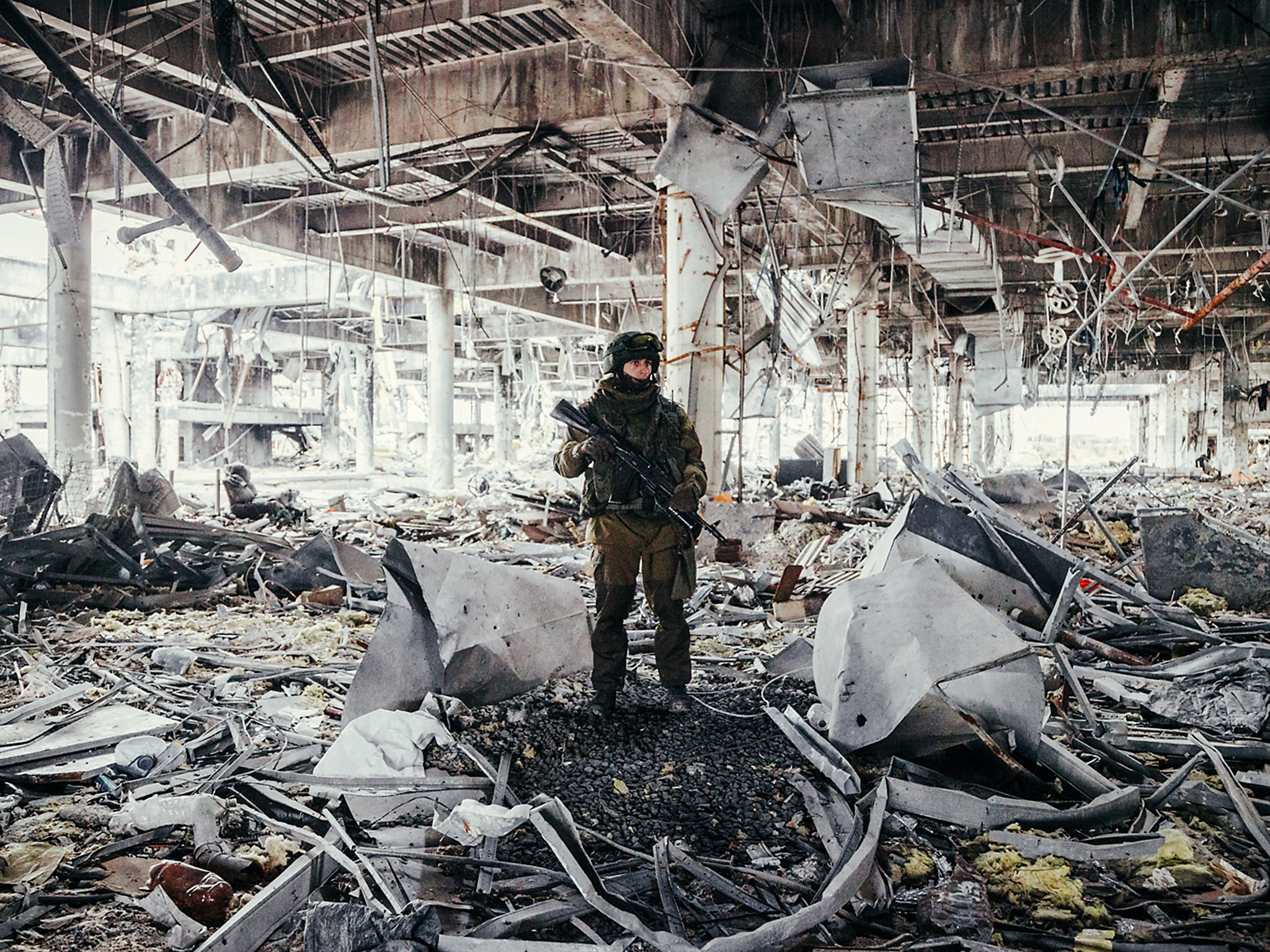
Physical exercise has a main place in Sparta’s everyday life; they practice all the time, partly because they are a new army and partly in case of a Ukrainian attack.
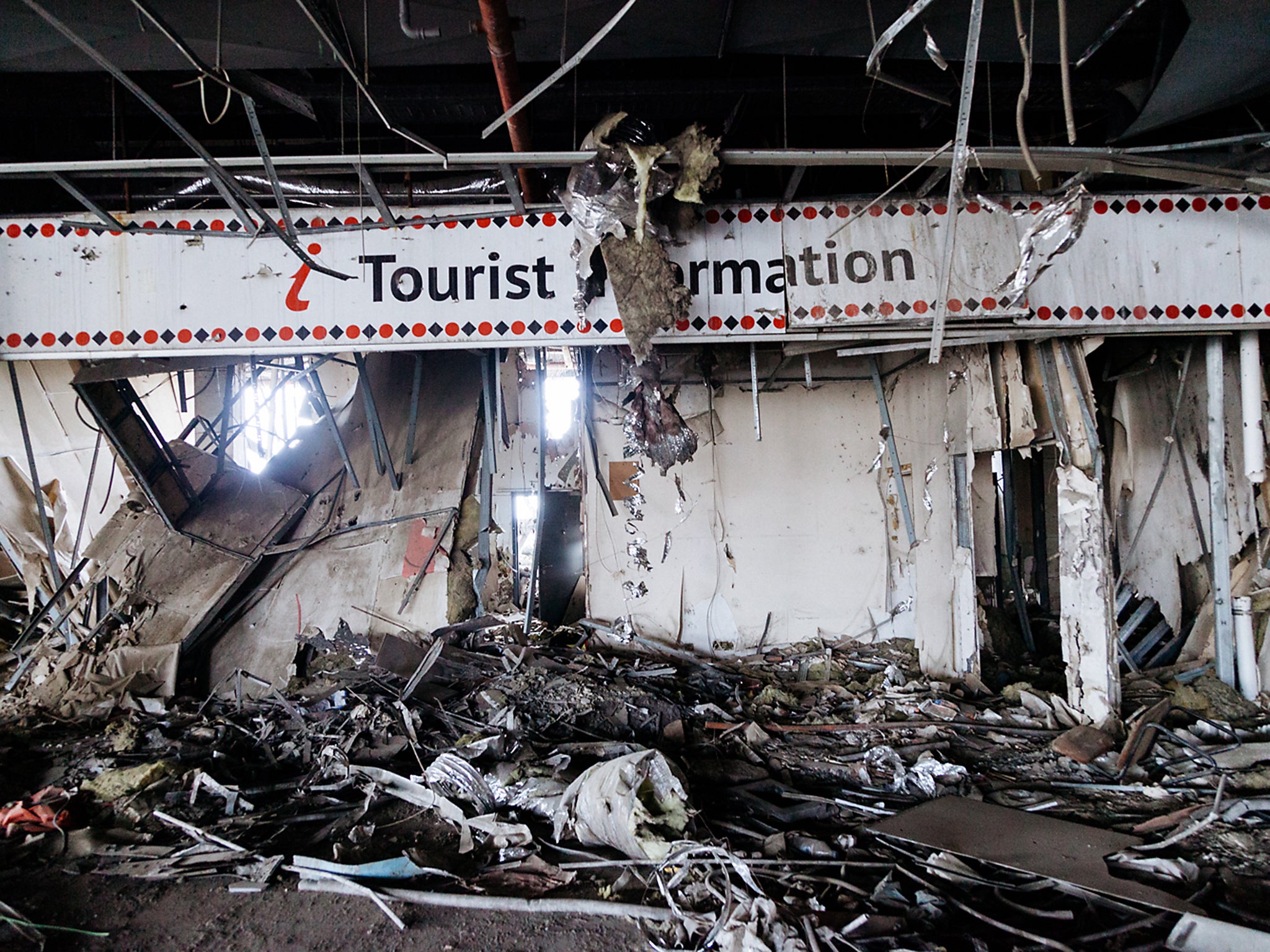
Amid the tables full of AK-47 some halters lie on the ground. When we ask the soldier what he does to calm himself when he is scared on the field, he laughs. “I’m not scared of anything... I’m a fighter!”
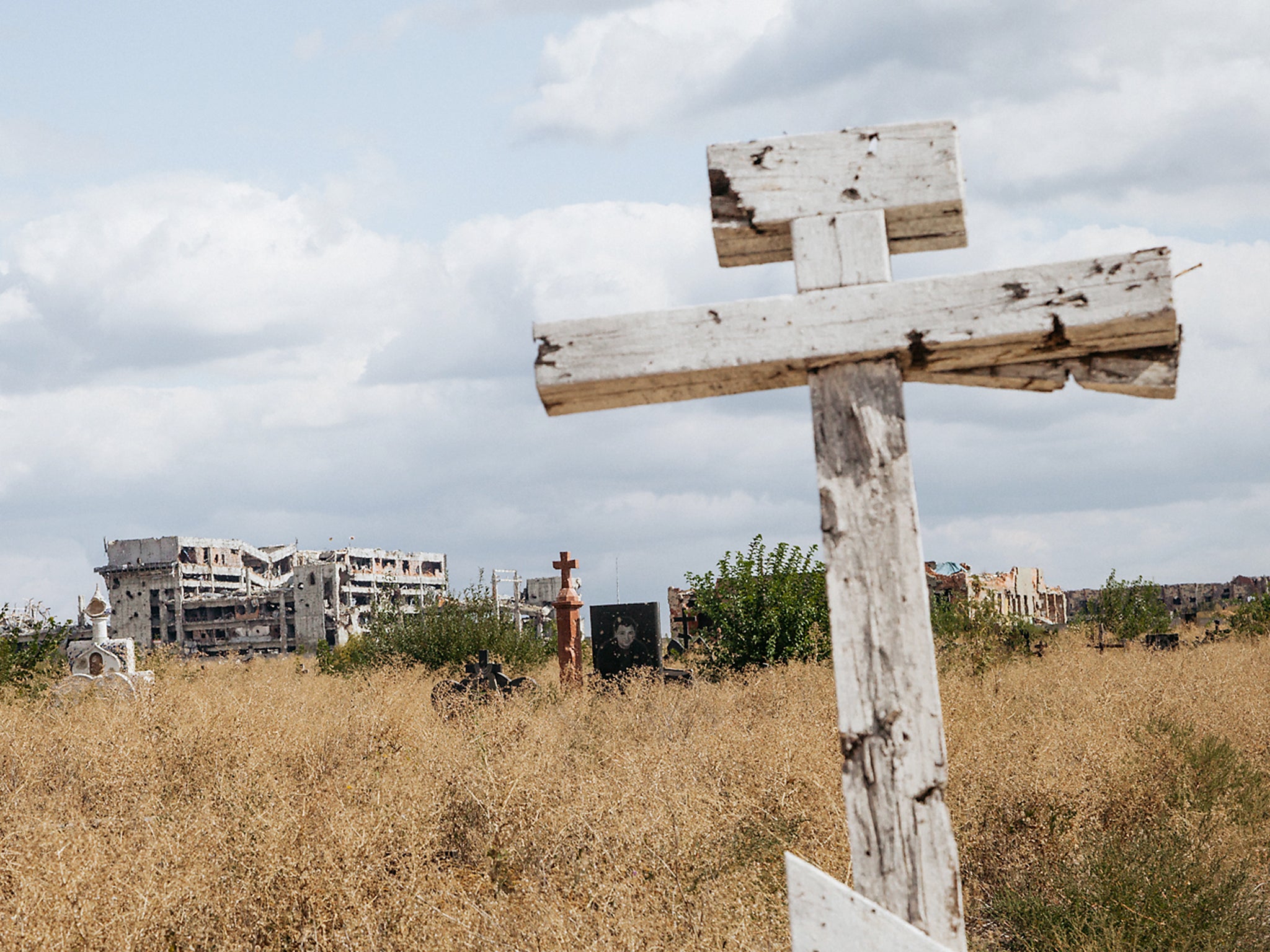
Some soldiers are pretty young like Denis, who is 22. The head of the squad, Dmitry, is in his early thirties; he never drops the pressure to relax. He admits, “In my free time I spend my energy training to fight!”
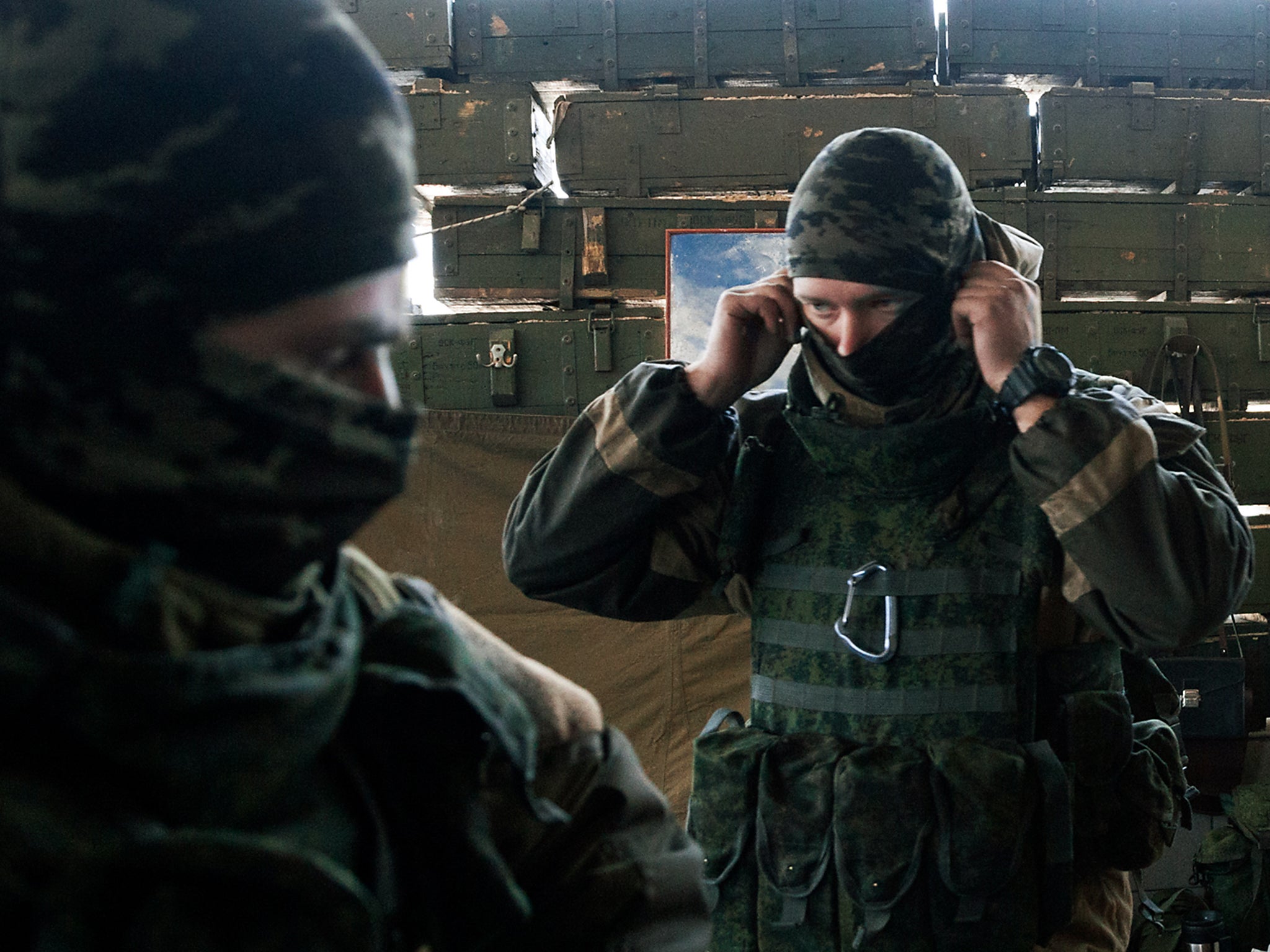
Another guy, Mazaï, is about the same age as Dmitry but takes the opposite view; he needs music to stay calm. “When I’m not fighting or training to fight, I like to play the guitar,” he tells us while grabbing the dust-covered instrument from near the weapons to play a tune.
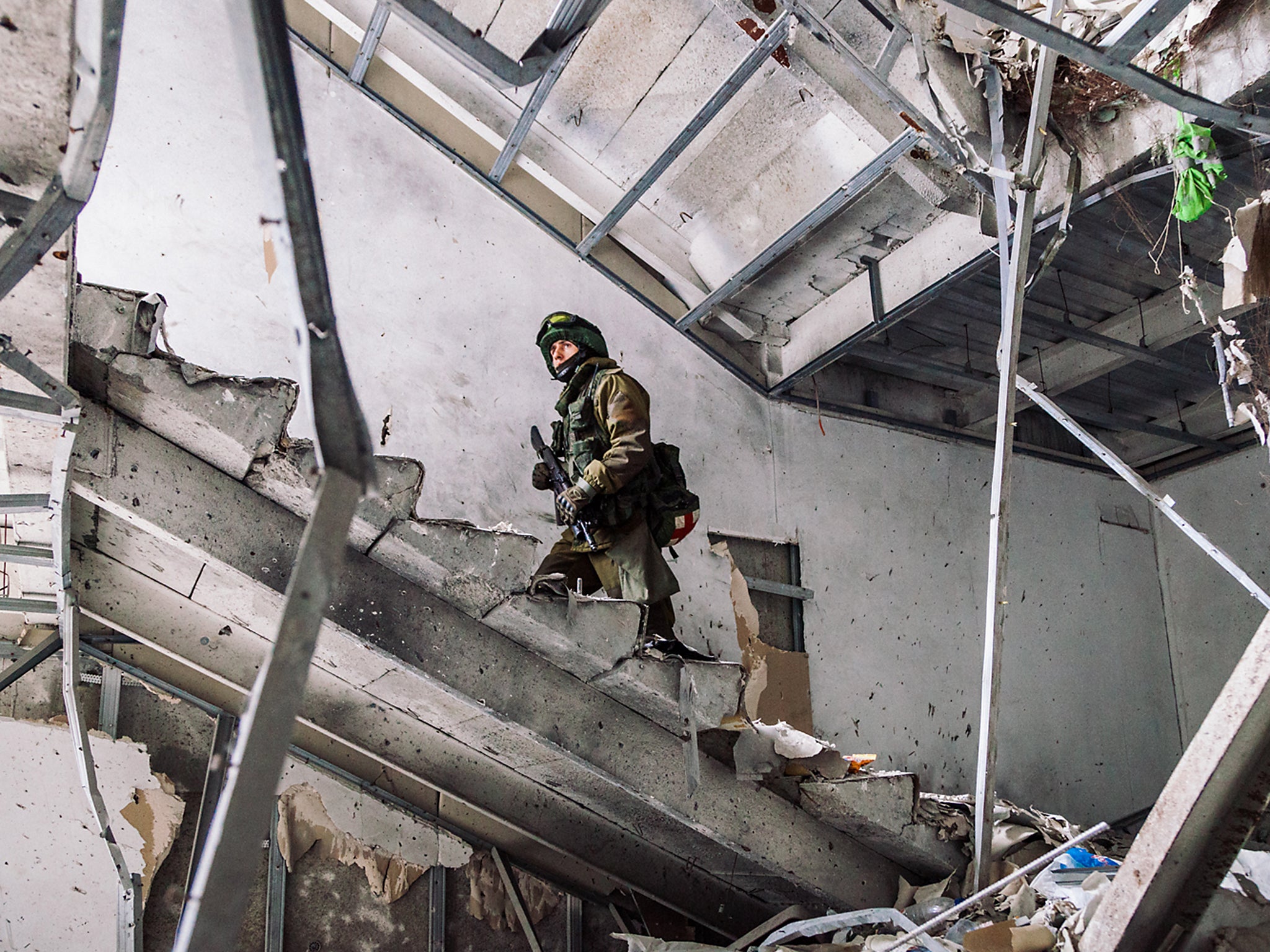
Lim – who is about to go and start his shift – shows us an old book about Spartacus which lies open on a table. The 26-year-old explains, “When I’m not fighting I like to spend my time reading.” War novels are his favourites. “The author I prefer is Mikhaïl Sholokhov because he writes about combat.” Sholokhov, the Nobel Prize-winning Russian writer, is best known for his epic novel about Cossacks, And Quiet Flows the Don, which was considered a major piece of socialist Soviet realism.
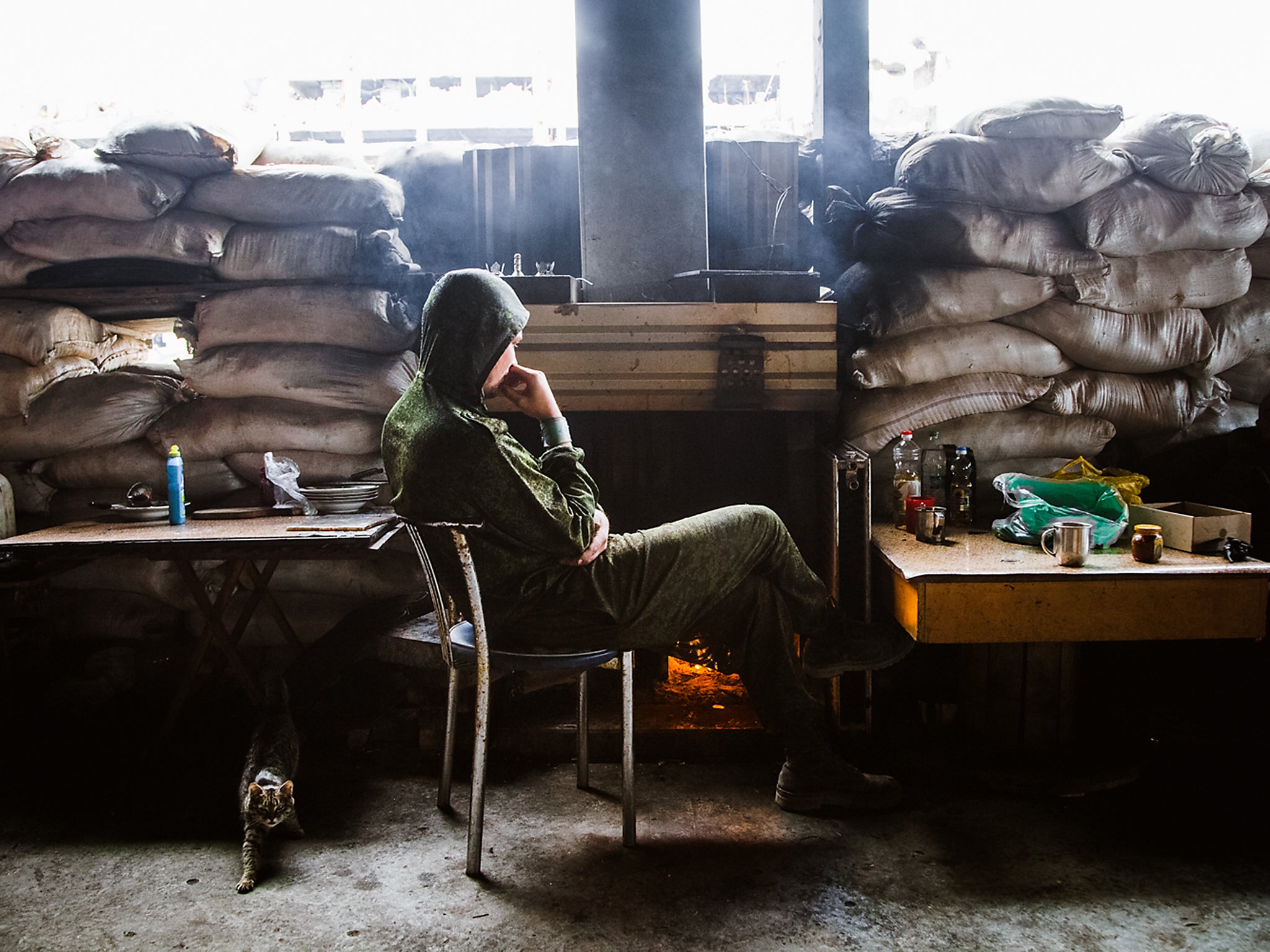
“With the war and all the people who have left Donetsk there are a lot of abandoned animals,” Lim says. He likes having Demon the kitten near him when he catches up on some sleep. “When we find a cat or a dog we baptise it with ammunition and give it a battle name, it’s our custom!”
Adopted pets have a significant role in war; they often prevent many soldiers from dying. So even if fighters like to cuddle them, they keep in mind that these animals might not live long. “They saved us many times especially with landmines,” Lim says. “When a dog jumps on a landmine it’s one more chance for the men not to get injured or be killed.”
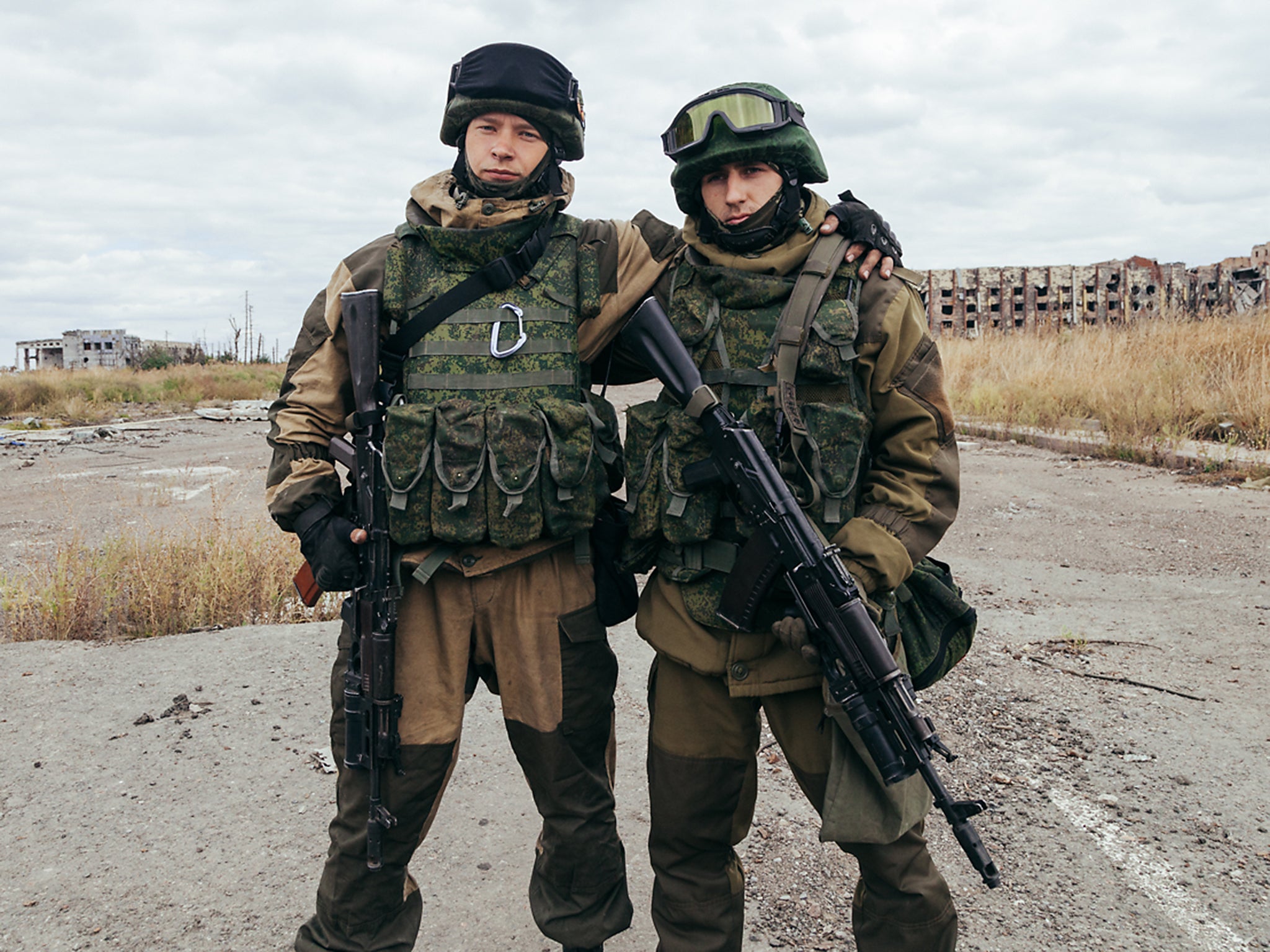
Walking through the rubble inside the former terminal, Denis says: “I was very anxious before I came here, I should have a Russian spirit, it would be easier! Now with the adrenaline during the fighting it’s okay.” He is the only one of the battalion who dares to express his fears. His family is his motivation for fighting. “My mother, my sister and my girlfriend are in this city, I want them to be safe.”
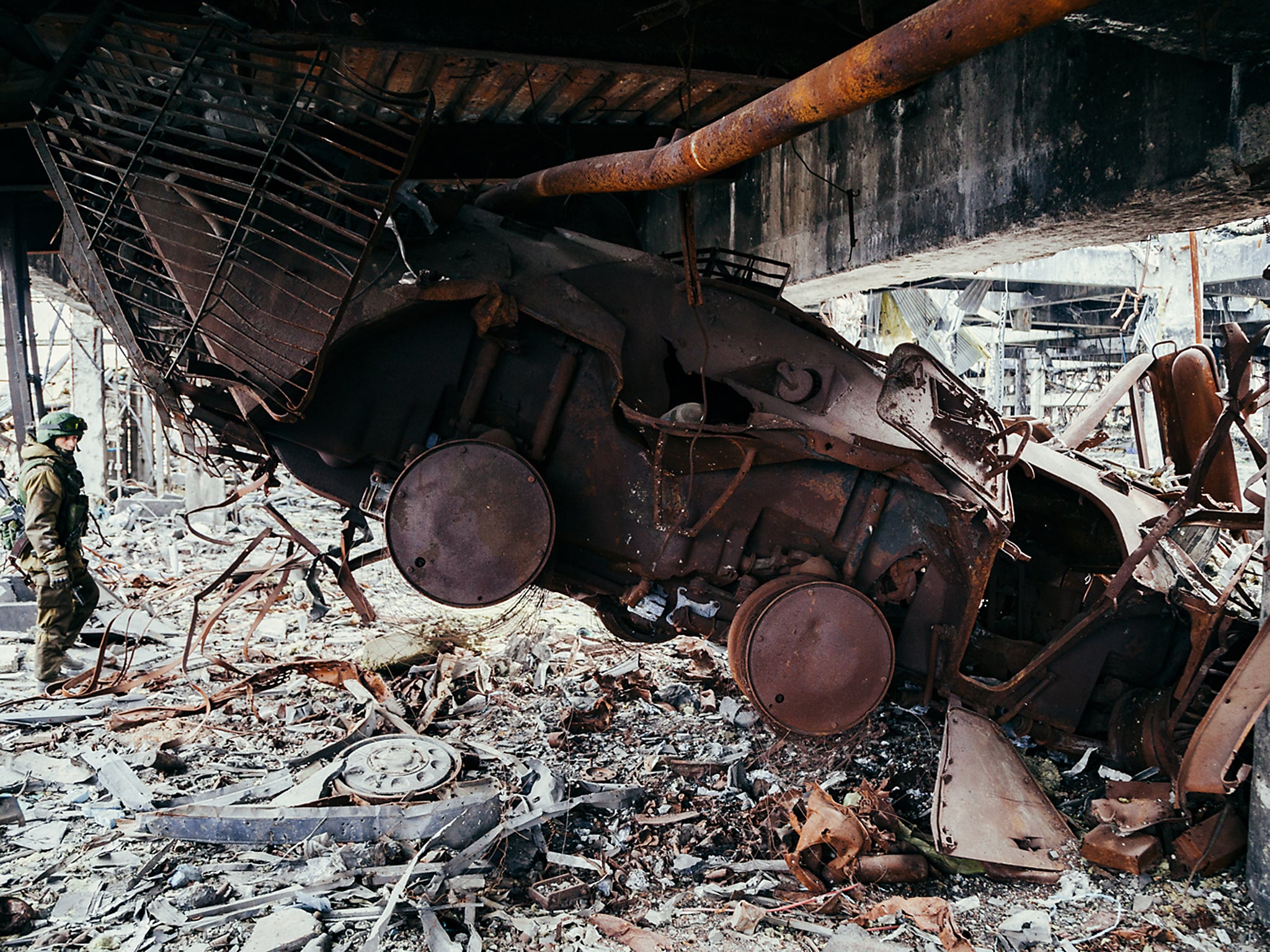
On what is left of the landing strip, 1.2 miles away from the Ukrainian army, Gilis points towards a flag flapping at the top of a destroyed building. “This is Sparta’s flag, there is the letter M on it because it is dedicated to Motorola, our commander – he is a DPR hero.” Their famous chief was assassinated few weeks ago at his home in Donetsk. He was Russian and came to the DPR to fight for independence.
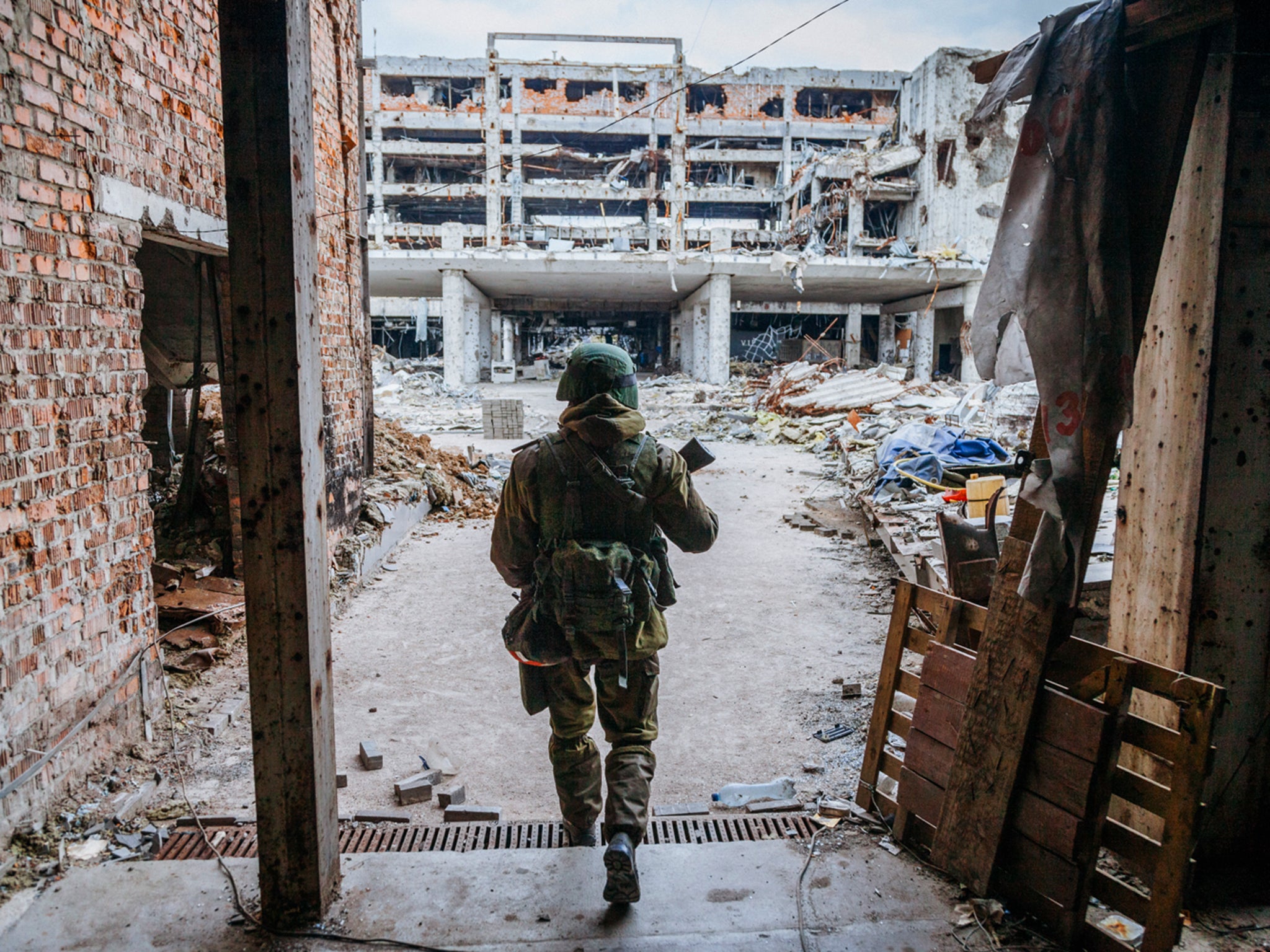
When the war began, no military structure existed in the Republic. Battalions such as Sparta were defending the self-proclaimed state, and have since been incorporated into the regular army. Now the squads are attached to the Ministry of Defence, they receive all sorts of supplies on a regular basis to make life a little more bearable: old rusty bullets, chocolate, cigarettes and food.
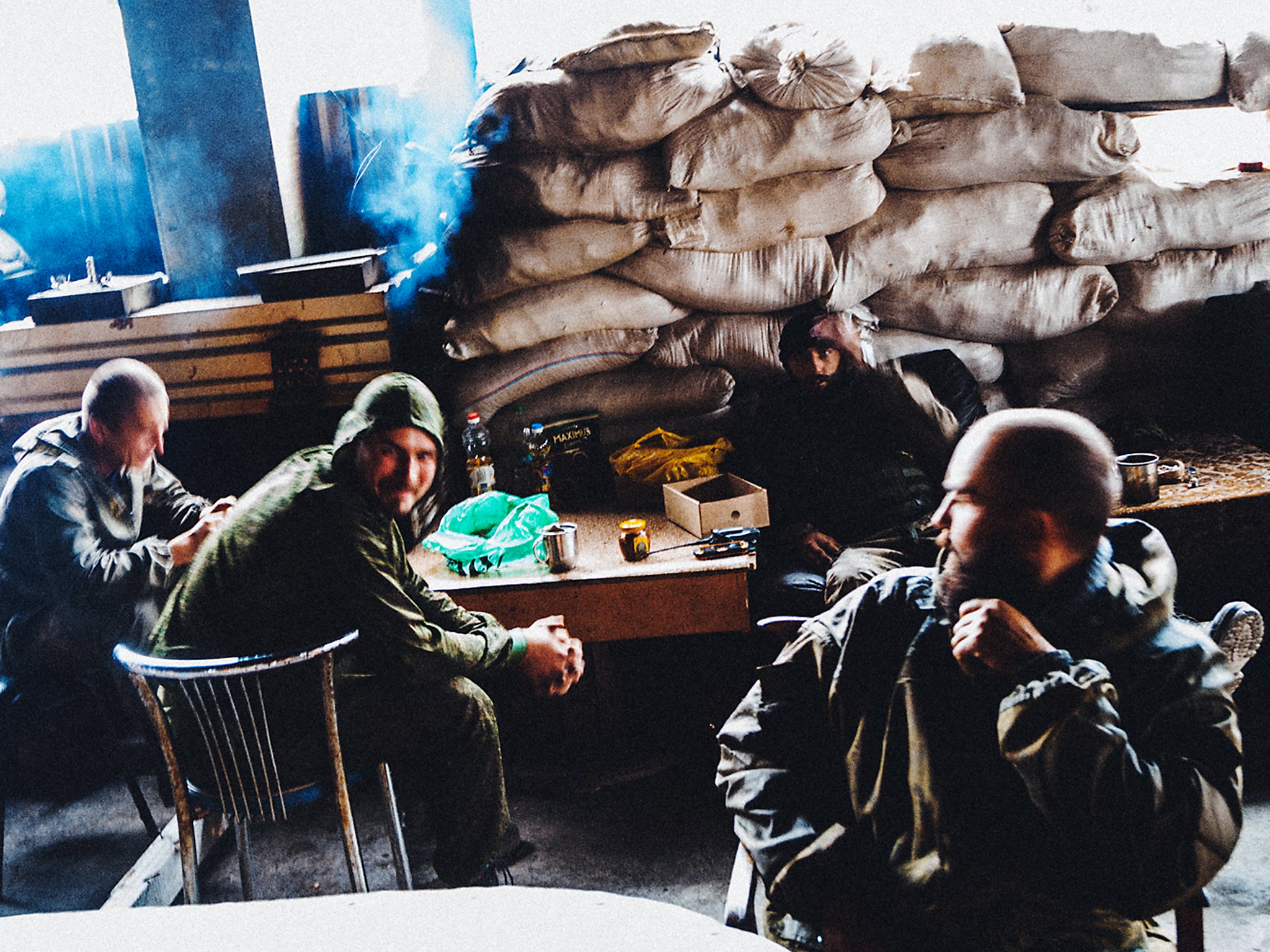
The guys hang out at the dinner table, smoking cigarettes and drinking Coke. Such conviviality is a kind of survival mechanism on the frontline. A squad spend usually eight hours on a position, and though they rarely eat dinner all together because of the patrols, they create a strong brotherhood amid the chaos mingling duty and friendship. “We are all like brothers,” confides Lim, “we would kill for each other.”
Join our commenting forum
Join thought-provoking conversations, follow other Independent readers and see their replies
Comments